Data Transformation
In this section, we'll guide you on how to perform data transformations.
Use Cases
When the data you've extracted from a webpage does not meet your needs, you can transform it by adding transformers. For example, you can trim whitespace, use regular expressions to replace or extract data, format dates, or convert data types.
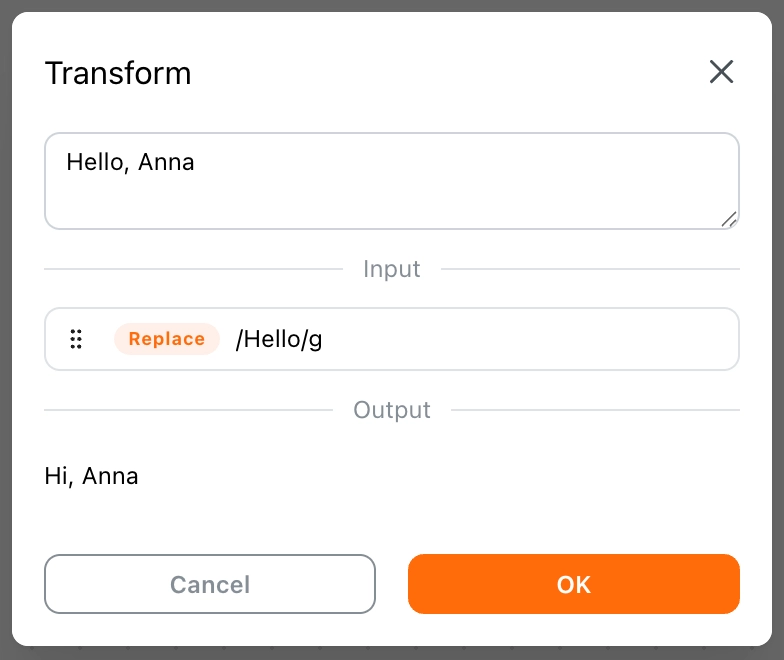
You can add multiple transformers and they will be executed in sequence.
Next, we'll go over the usage of each transformer.
Trim
Trims whitespace from the start or end of a string.
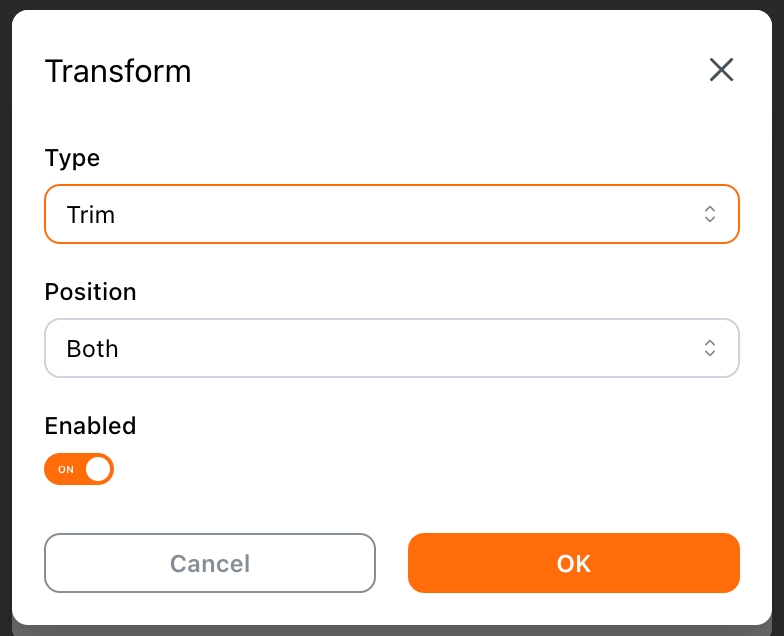
Arguments
Value: String, the input valuePosition: Enum, which position to trim the whitespace
Returns
- String, the trimmed string
- Any, if
Valueis not a string, it will return the original value
Examples
Given the string:
" abc "
Example 1: If Position = Start, the output will be:
"abc "
Example 2: If Position = End, the output will be:
" abc"
Example 3: If Position = Both, the output will be:
"abc"
Replace
Replaces the matched string with a specified replacement.
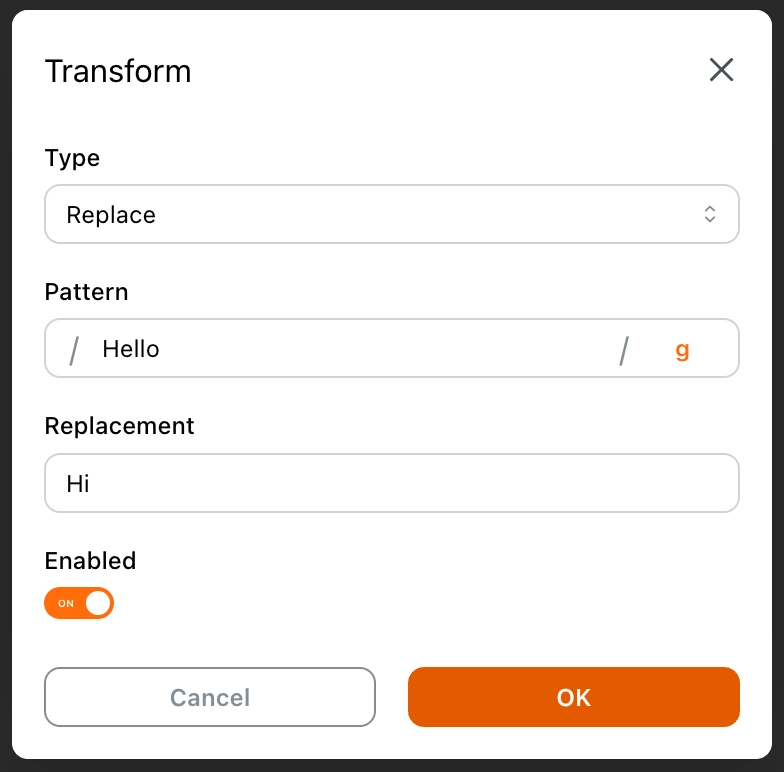
Arguments
Value: String, the input valuePattern: RegExp, a regular expressionReplacement: String, the replacement string. If not provided, it will replace with an empty string.
Returns
- String, the resulting string after replacement
- Any, if
Valueis not a string or ifPatternis incorrect, it will return the original value
Examples
Given the string:
"Hello, Anna"
Example 1: If Pattern = /Hello/g and Replacement = "Hi", it will replace "Hello" with "Hi", resulting in:
"Hi, Anna"
Example 2: If Pattern = /Hello/g and Replacement = "", it will replace "Hello" with an empty string, resulting in:
", Anna"
Example 3: If Pattern = /abc/g and Replacement = "", there will be no match, and the result will be:
"Hello, Anna"
Match
Extracts matched parts of a string based on a pattern.
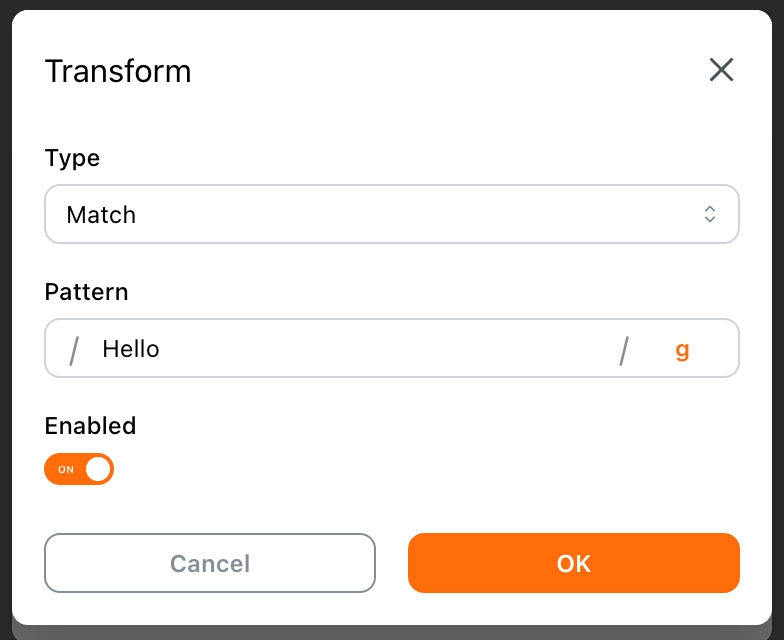
Arguments
Value: String, the input valuePattern: RegExp, a regular expression
Returns
- Array, returns an array of matched results
- Null, returns
nullif no match is found - Any, if
Valueis not a string orPatternis incorrect, it will return the original value
Examples
Given the string:
"Hello, Anna! Hello, Nick!"
Example 1: If Pattern = /Hello/g, the output will be:
[ "Hello", "Hello" ]
Example 2: If Pattern = /abc/g, the output will be:
null
Extract
Extract is a variant of Match. The difference is that Extract converts the array returned by Match into a string, separating each value with a comma ,.
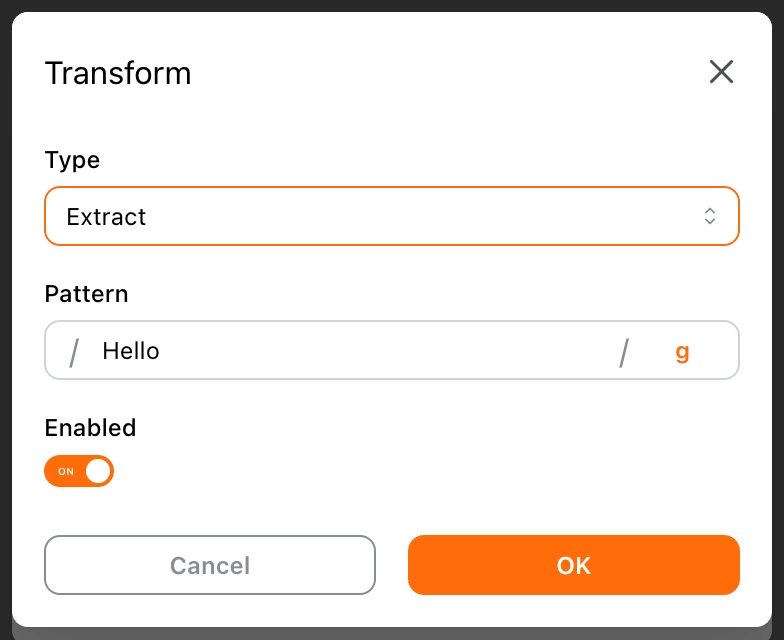
Arguments
Value: String, the input valuePattern: RegExp, a regular expression
Returns
- String, returns a string of matched results
- Null, returns
nullif no match is found - Any, if
Valueis not a string orPatternis incorrect, it will return the original value
Examples
Given the string:
"Hello, Anna! Hello, Nick!"
Example 1: If Pattern = /Hello/g, the output will be:
"Hello,Hello"
Example 2: If Pattern = /abc/g, the output will be:
null
Modify
Adds a prefix and suffix to a string.
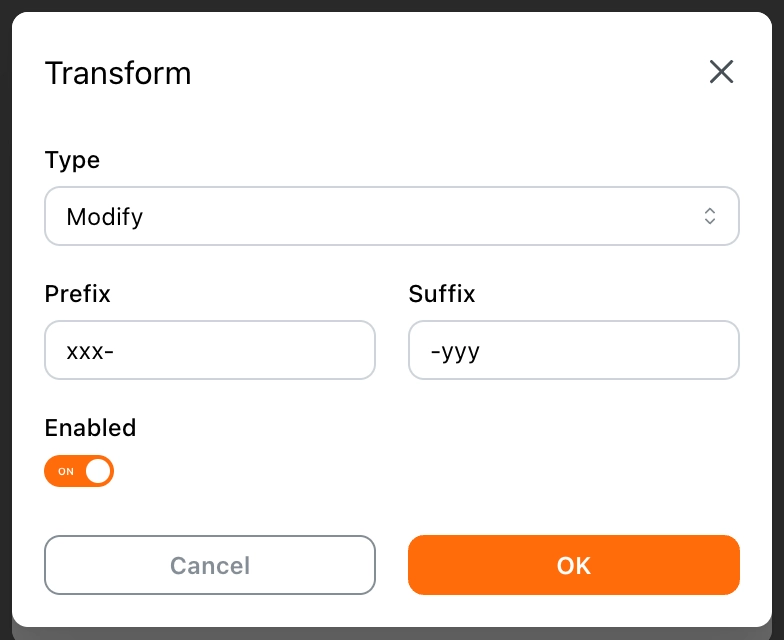
Arguments
Value: String, the input valuePrefix: String, the prefix to addSuffix: String, the suffix to add
Returns
- String, returns the modified string
- Any, if
Valueis not a string, it will return the original value
Examples
Given the string:
"Anna"
Example 1: If Prefix = "xxx-", Suffix = "-yyy", the output will be:
"xxx-Anna-yyy"
Split
Splits a string into an array.
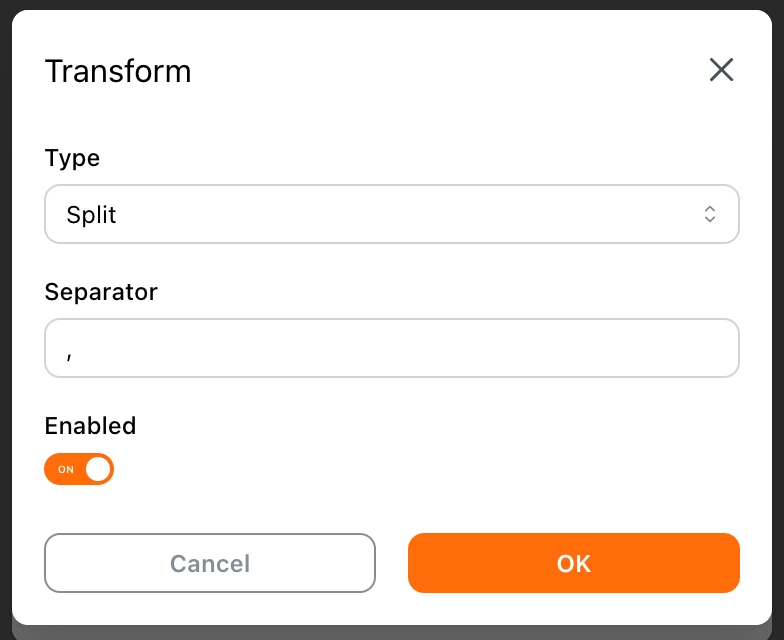
Arguments
Value: String, the input valueSeparator: String, the separator used to split the string
Returns
- Array, returns the array of split values
- Any, if
Valueis not a string, it will return the original value
Examples
Given the string:
"Anna,Nick"
Example 1: If Separator = ",", the output will be:
[ "Anna", "Nick" ]
Size
Returns the length of a string or the number of elements in an array.
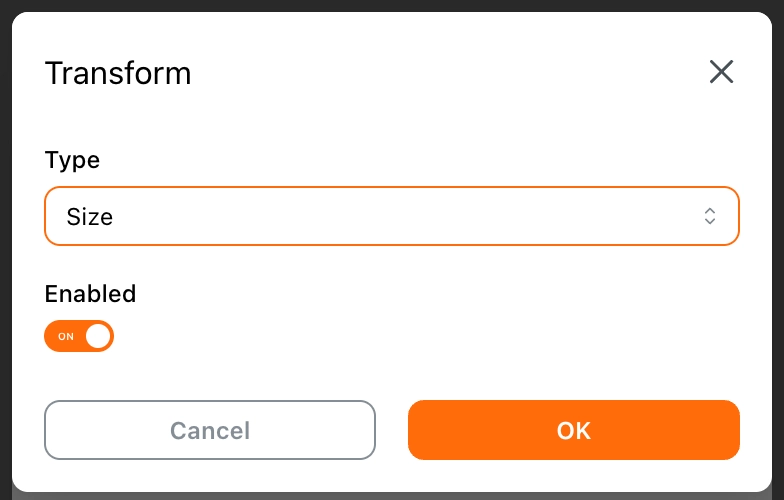
Arguments
Value: Array | String, the input value
Returns
- Number, returns the length of the string or the number of elements in the array
- Any, if
Valueis not an array or a string, it will return the original value
Examples
Example 1: If Value = [ "Anna", "Nick" ], the output will be:
2
Example 2: If Value = "Anna", the output will be:
4
Slice
Extracts a portion of an array or substring from a string.
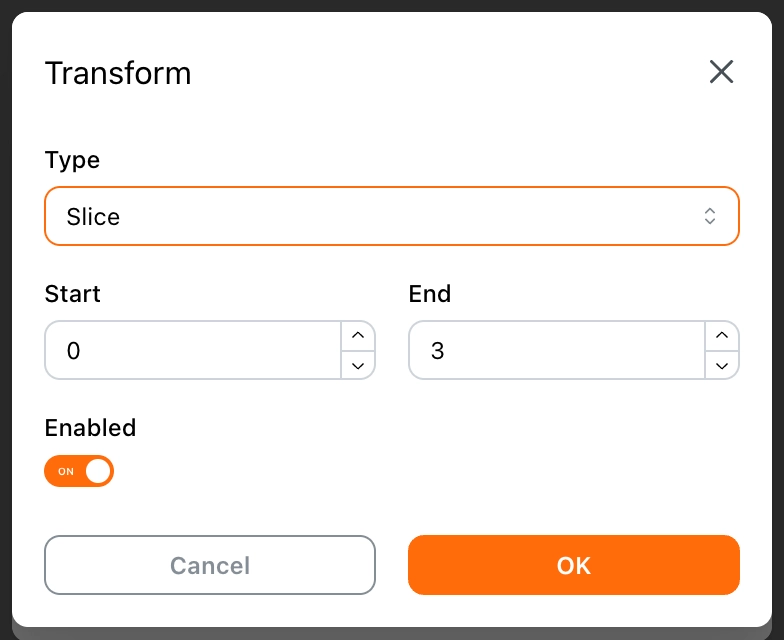
Arguments
Value: Array | String, the input valueStart: Number, the starting index (starts from 0)End: Number, the ending index (starts from 0)
Returns
- Array, returns the portion of the array
- String, returns the substring
- Any, if
Valueis not an array or string, it will return the original value
Examples
Example 1: If Value = [ "A", "B", "C", "D", "E" ], the output will be:
[ "A", "B", "C" ]
Example 2: If Value = "ABCDE", the output will be:
"ABC"
At
Retrieve an element from an array or a character from a string.
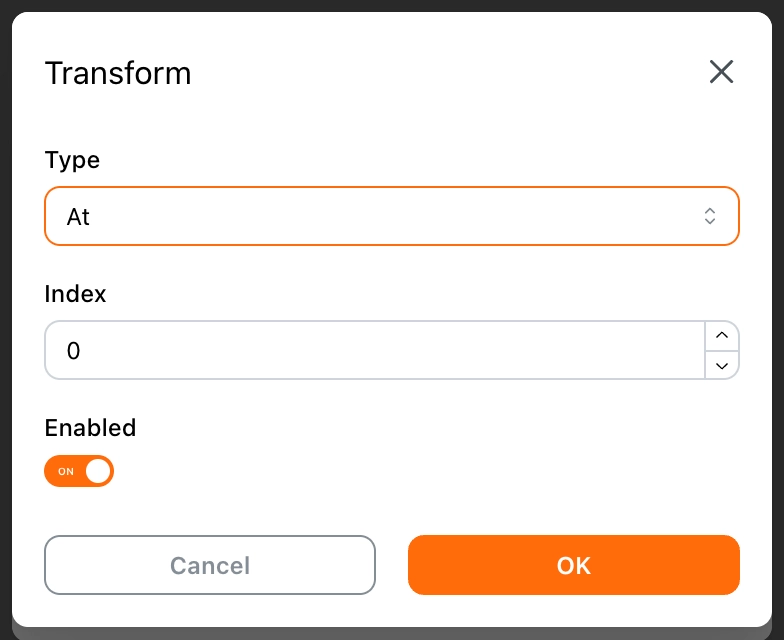
Arguments
Value: Array | String, the input valueIndex: Number, the index of the element (starting from 0)
Returns
- Any, the specified element of an array
- String, the specified character of a string
- Any, if
Valueis neither an array nor a string, it will be returned as-is
Examples
Example 1: When Value = [ "A", "B", "C", "D", "E" ], the output will be:
"A"
Example 2: When Value = "ABCDE", the output will be:
"A"
Join
Concatenate an array into a string.
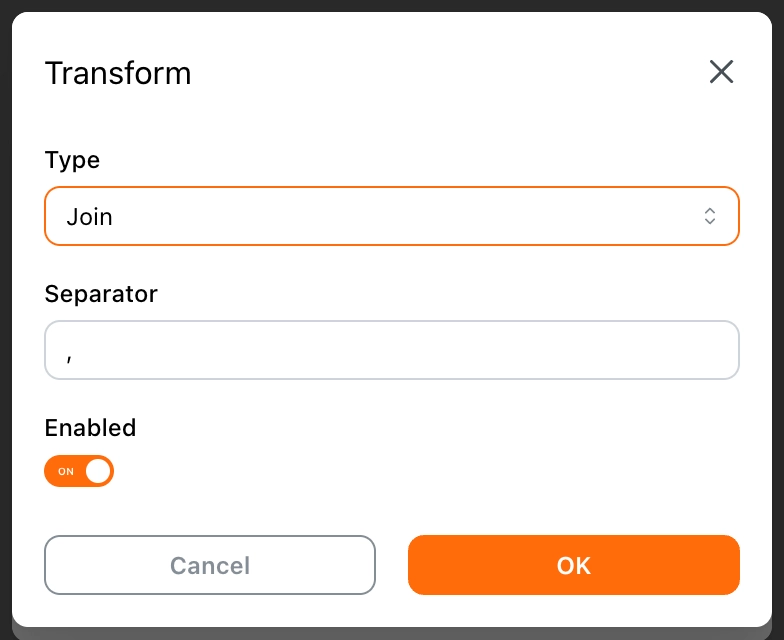
Arguments
Value: Array, the input valueSeparator: String, the delimiter used to separate elements
Returns
- String, the concatenated string
- Any, if
Valueis not an array, it will be returned as-is
Examples
Suppose we have the following array:
[ "A", "B", "C" ]
Example 1: When Separator = ", ", the output will be:
"A, B, C"
Example 2: When Separator = " | ", the output will be:
"A | B | C"
Sort
Sort the elements of an array.
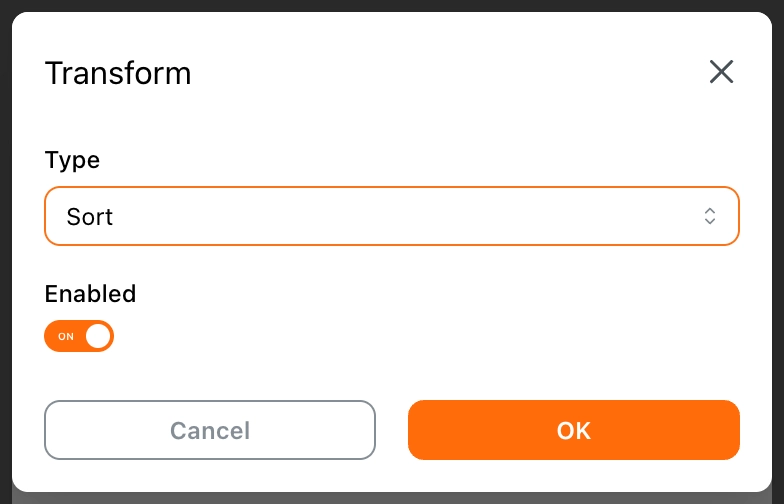
Arguments
Value: Array, the input value
Returns
- Array, the sorted array
- Any, if
Valueis not an array, it will be returned as-is
Examples
Example 1: When Value = [ "C", "A", "B" ], the output will be:
[ "A", "B", "C" ]
Unique
Make the elements of an array unique.
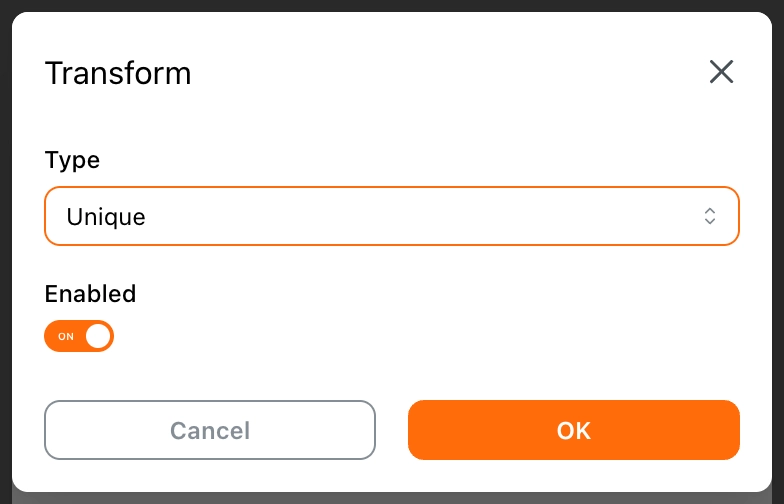
Arguments
Value: Array, the input value
Returns
- Array, the array with unique elements
- Any, if
Valueis not an array, it will be returned as-is
Examples
Example 1: When Value = [ "A", "A", "B", "B" ], the output will be:
[ "A", "B" ]
Compact
Remove falsy values from an array, such as: "", 0, false, undefined, null, NaN.
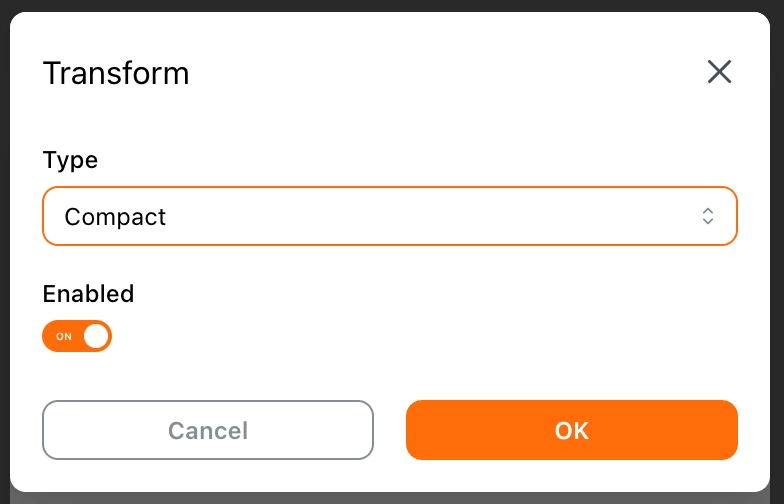
Arguments
Value: Array, the input value
Returns
- Array, the array with falsy values removed
- Any, if
Valueis not an array, it will be returned as-is
Examples
Example 1: When Value = [ "A", "", 0, "B" ], the output will be:
[ "A", "B" ]
Format
Format a date. For more information, refer to Day.js.
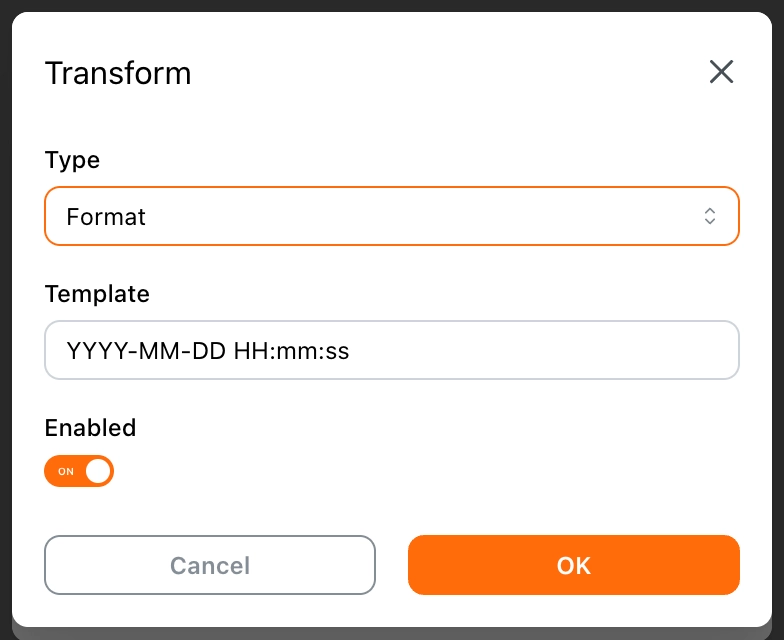
Arguments
Value: Number | String | Date, the input value
Returns
- String, the formatted date string
- Any, if
Valueis not a valid date, it will be returned as-is
Examples
Example 1: When Value = 1728718675568, the output will be:
"2024-10-12 15:37:55"
Example 2: When Value = "2024-10-12T07:37:55.568Z", the output will be:
"2024-10-12 15:37:55"
toString
Convert a value to a string.
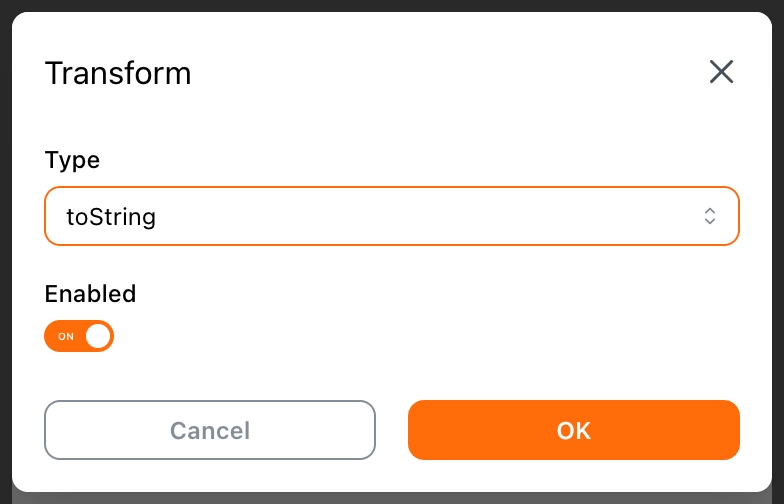
Arguments
Value: Any, the input value
Returns
- String, the converted string
Examples
Example 1: When Value = 123, the output will be:
"123"
Example 2: When Value = true, the output will be:
"true"
Example 3: When Value = [ "A", "B" ], the output will be:
"[ 'A', 'B' ]"
toNumber
Convert a value to a number.
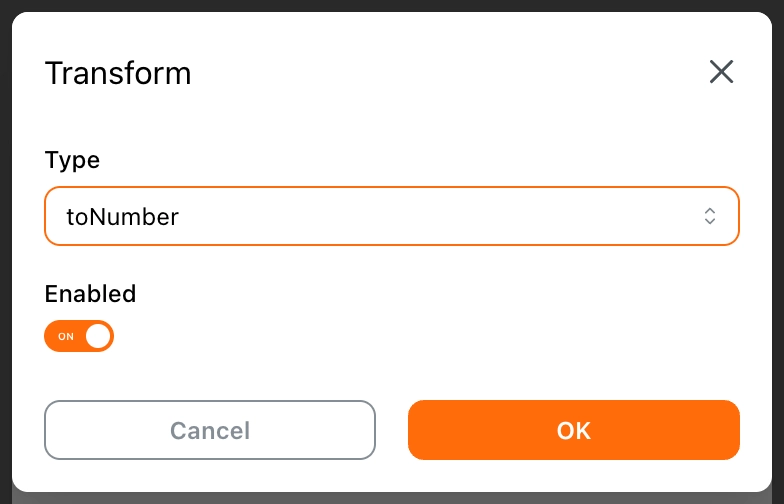
Arguments
Value: Any, the input value
Returns
- Number, the converted number
Examples
Example 1: When Value = "123", the output will be:
123
toBoolean
Convert a value to a boolean. Values such as "", 0, false, undefined, null, NaN will be converted to false, while other values will be converted to true.
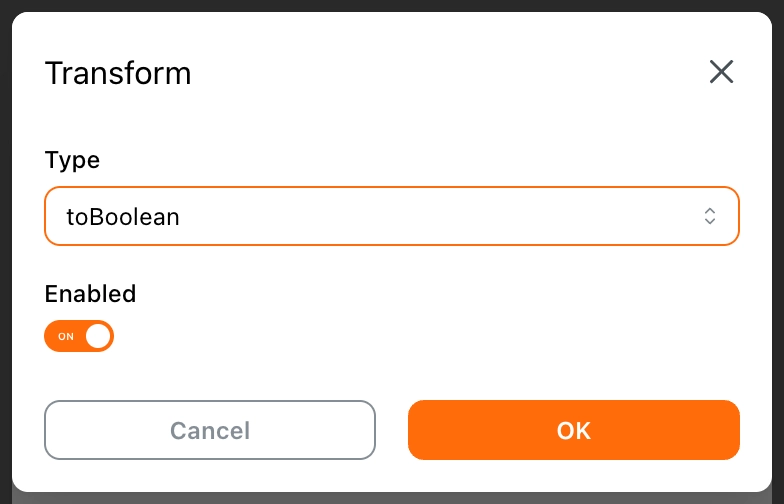
Arguments
Value: Any, the input value
Returns
- Boolean, the converted boolean value
Examples
Example 1: When Value = 1, the output will be:
true
Example 2: When Value = 0, the output will be:
false
toArray
Convert a value to an array.
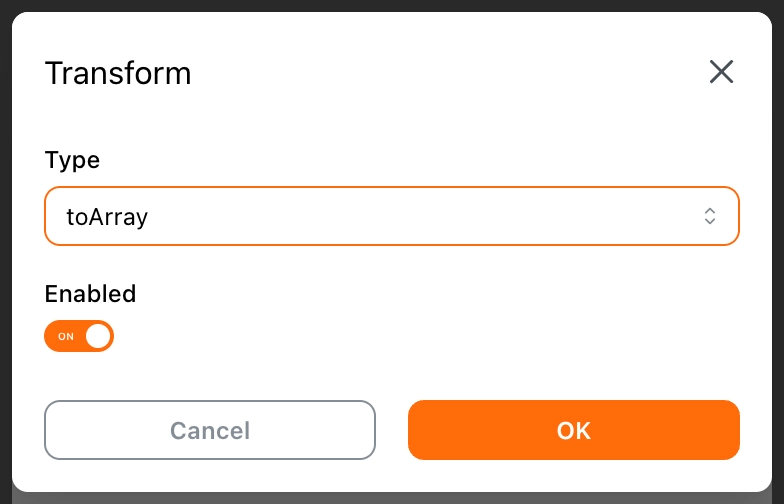
Arguments
Value: String, the input value
Returns
- Array, the converted array. If the conversion fails, it returns an empty array
[].
Examples
Example 1: When Value = '[ "A", "B" ]', the output will be:
[ "A", "B" ]
toJSON
Convert a value to JSON.
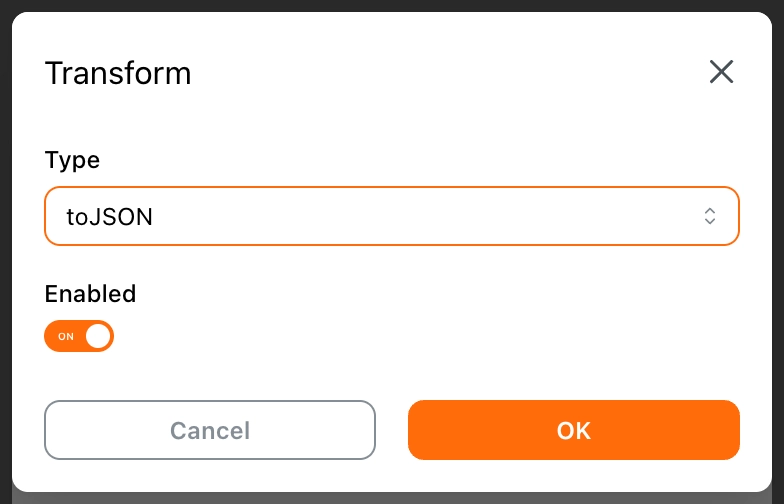
Arguments
Value: String, the input value
Returns
- Object, the converted JSON object. If the conversion fails, it returns an empty JSON object
{}.
Examples
Example 1: When Value = '{ "foo": "bar" }', the output will be:
{ foo: "bar" }